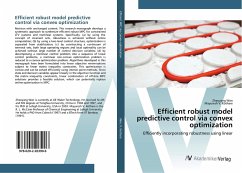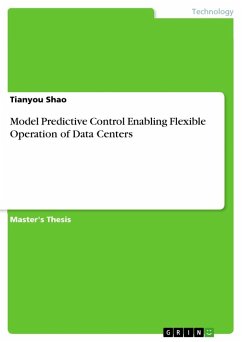Shipboard power distribution systems and their first cousins in the terrestrial world have common fundamental characteristics. They use a variety of interconnected components to transport electrical energy, safely and reliably, from a source of supply to end users and loads. Shipboard integrated power systems, the key enablers of ship electrification, call for effective power management control (PMC) to achieve optimal and reliable operation in dynamic environments under hardware limitations and operational constraints. The design of PMC can be treated naturally in a model predictive control (MPC) framework, where a cost function is minimized over a prediction horizon subject to constraints. The power generation in ship system will include in high cost and complex. In order to reduce these problems renewable energy sources can be used with the power management with photo voltaic cell and fuel cell applications.
Bitte wählen Sie Ihr Anliegen aus.
Rechnungen
Retourenschein anfordern
Bestellstatus
Storno








